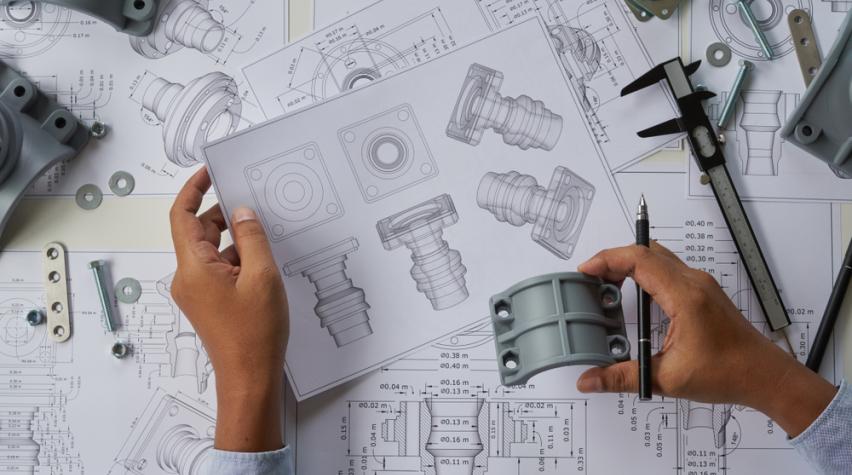
What do you think of when you consider a new product? Maybe it's a new smartphone or video game. Maybe you think of a new hybrid car or a meatless “hamburger.” All these new products we hear about every day, and they make a big splash on television news and social media.
However, we encounter new products – and services – with both hardware and software improvements in all aspects of our lives. As chemical engineers, we also influence the design, development, and manufacture of new products. In fact, new product development (NPD) is an attractive career path for chemical engineers. NPD blends our scientific and technical knowledge with business and market expertise. (More on marketing and sales careers in the next post in this series).
What is product development?
Product development is the transformation of an idea into a commercially salable product (or service). Products might be tangible goods – things that we can touch and feel. Or products may be intangible – like software, e-commerce, or services. In all cases, products involve a producer and a consume. If you conceive a great idea but never sell it for a profit, it is simply an invention (and not a product).
Note that we include services within the definition of a product. Services include things like insurance, monitoring, and consulting. Also starting with an idea, services provide something of value to a customer for which the producer (service provider) makes a profit. As in all product development, both the consumer and producer gain value through the transaction.
Other new products include improvements and next generation offerings. In earlier posts, we discussed traditional roles of chemical engineers in plants and R&D as well as working in quality management. Understanding these skills can improve existing products to enhance how customers use their products, save money in manufacture, and reduce failures in usage. Chemical engineers are particularly well-suited to careers in product development because of our educational training and analytical thought, systems approaches, and problem-solving ability.
The business side of NPD
If you are interested in the dynamic career path of working in product development, it's important to know that many chemical engineers need to bridge a gap in education to better understand business income and profitability. New products are successful when there are sufficient numbers of customers buying the products at a price that yields a profit for the producer. Thus, when the new product is still in the idea phase, engineers must capture data representing potential customer interest and to document the highest-desired feature set. These activities can be somewhat quantitative but largely rely on qualitative data.
For example, ChEs working in product development are called upon to facilitate focus groups to understand customer needs and desires. After all, there's no use in designing a new feature or new product if no one is interested in buying it. Collaborative feedback, known as the voice of customer, from potential consumers helps to drive the design of a new product. Chemical engineers convert such qualitative information into quantitative design specifications for manufacture.
Working in product development also means working with incomplete and unfinished products. Testing both functional and non-functional prototypes is a big step in gathering customer data for market acceptance of a new product. Finally, ChEs are successful working in product development due to an ability to translate the ideas and qualitative market data into specific and efficient manufacturing processes. Therefore, product development taps all the basic skills of chemical engineers to transform nascent ideas into commercial products.
How do you become a product development professional?
I encounter chemical engineers working in product development in all industries – pharmaceuticals, petrochemicals, consumer packaged goods, household appliances, food and beverage, machinery, services, and more. Most of these individuals have worked in their industry for five to ten years and have a thorough understanding of the common manufacturing and design processes. Most people working in product development have also had exposure to the business side of their industry – either internally within marketing or externally with sales. Business understanding is important for chemical engineers working in product development because it's required to identify and design potentially profitable features and attributes of new products.
You may be working in product development already! If you work on improving the manufacturing process for cost-efficiency or quality, you are helping to enhance the customer experience. If you work in R&D, you are identifying new molecules and processes to generate products of the future. And if you work in plant operations, you are helping to deliver products on time to the marketplace, keeping customers happy.
In the next post in this series, we'll look at how chemical engineers branch from traditional process engineering careers and build on product development, working in marketing and sales.
If you are interested in learning more about professional development, networking, and interviewing, be sure to check AIChE Career DiscoveryTM, which is part of the Institute for Learning & Innovation (ILI). See upcoming instances of the Career Discovery Workshop on AIChE Academy and read more about the process here.
Learn more about professional development


